Jerusalem artichoke planter
Apr. 9th, 2020 10:13 pmCultured: How Ancient Foods Can Feed Our Microbiome, by Katherine Harmon Courage, made me want to grow Jerusalem artichokes. Courage argues that we evolved to eat lots of fiber, and lots of different kinds of fiber; and Jerusalem artichokes contain a kind that is particularly good for our metabolism.
I read that they were prone to spread and hard to get rid of, so I wanted to plant them in a container. I had a big plastic water trough
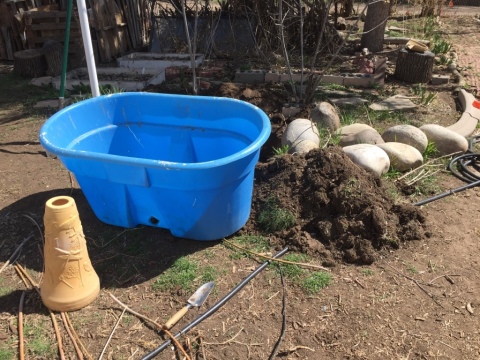
that was no longer usable as a water trough, after an unfortunate encounter with a tank heater that failed to shut off and melted a hole through the bottom
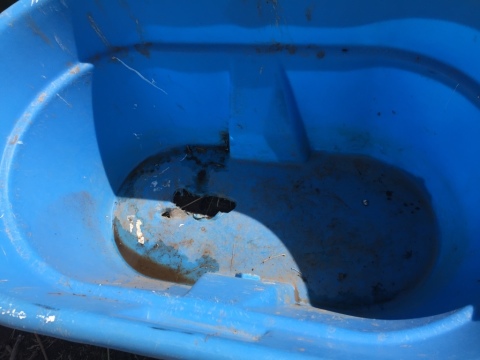
which made it usable as a planter. I dug a hole for it, though it might have been smarter not to. I might want to move it later, if it turns out not to be a good spot. I filled it with sticks, which will absorb water and hold it in the root zone, and also open up the soil to help the roots breathe. I don't know whether wood does that better than compost, but I had a lot of sticks.
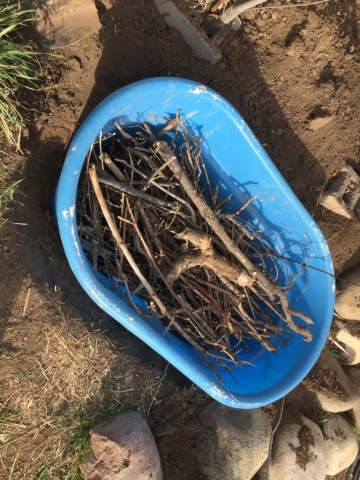
This is my compost screen. I'm using it to filter out perennial weeds: grass, bluebells, dandelions, bindweed. There will still be perennial weeds in the soil, but I'm giving myself a head start.
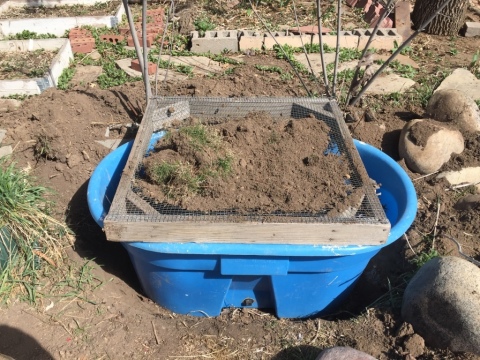
This is a pound of Jerusalem artichoke tubers, right before I pushed them four inches under the soil. They're a little crowded here, so I kept back four for my husband's garden.
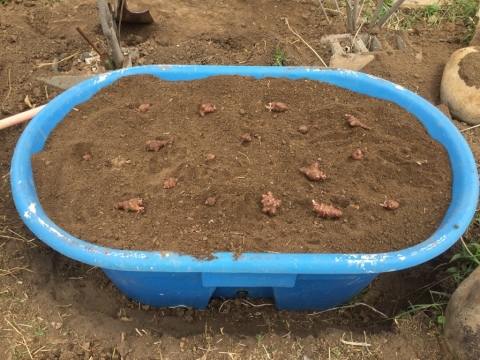
And a picture of my dogs just because:
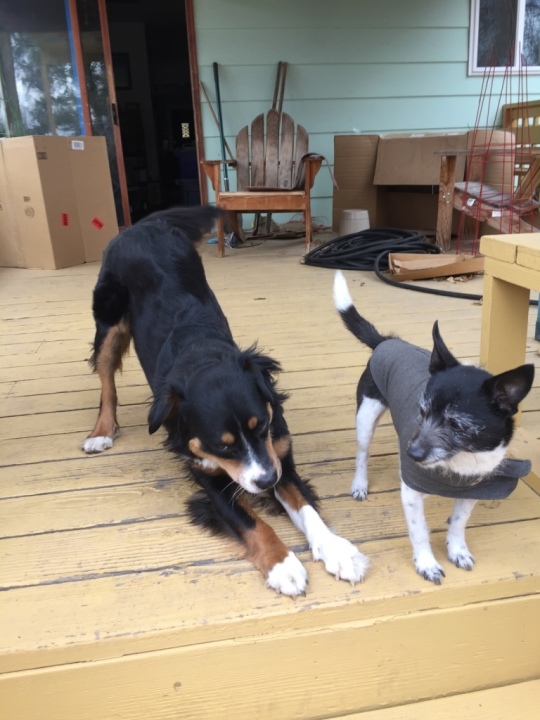
I read that they were prone to spread and hard to get rid of, so I wanted to plant them in a container. I had a big plastic water trough

that was no longer usable as a water trough, after an unfortunate encounter with a tank heater that failed to shut off and melted a hole through the bottom

which made it usable as a planter. I dug a hole for it, though it might have been smarter not to. I might want to move it later, if it turns out not to be a good spot. I filled it with sticks, which will absorb water and hold it in the root zone, and also open up the soil to help the roots breathe. I don't know whether wood does that better than compost, but I had a lot of sticks.

This is my compost screen. I'm using it to filter out perennial weeds: grass, bluebells, dandelions, bindweed. There will still be perennial weeds in the soil, but I'm giving myself a head start.

This is a pound of Jerusalem artichoke tubers, right before I pushed them four inches under the soil. They're a little crowded here, so I kept back four for my husband's garden.

And a picture of my dogs just because:
